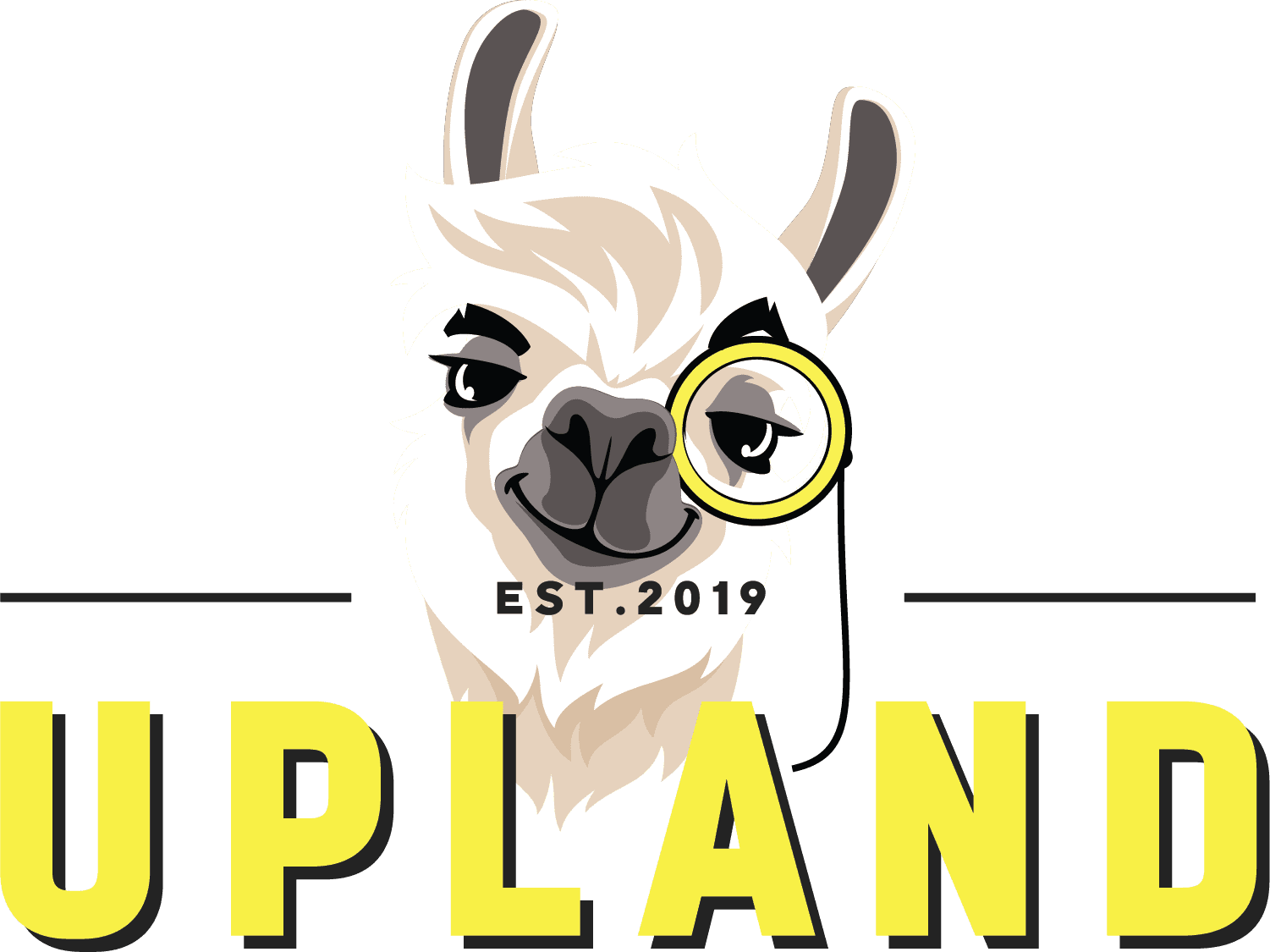Public Warning: Unmasking Upland Metaverse Game Scheme in the Crashing Crypto Market
Want to know more about Upland's money scheme and fake community building? This article aims to shed light on these issues.

In the fast-paced world of crypto ventures, it’s essential to take a critical look at the various projects that dot the landscape. One such project that has been in the talks is Upland, a “blockchain-powered” real estate trading game. However, beneath the gloss of its innovative gaming concepts lies an intricate web of questionable strategies and controversial management. This article aims to shed light on these issues, providing a public warning about Upland Metaverse game practices.
Upland, a virtual world platform founded in early 2018 in San Francisco, was initially positioned as a revolutionary concept to bring real estate into the metaverse, offering parallel worlds with business and leisure opportunities. However, over the years, Upland’s true intentions became increasingly apparent, as they prioritized profit over-delivering on their promises.
Empty Promises and Non-Functional Tokens
One of the earliest signs of Upland’s profit-driven approach was its partnership with Cryptoticker, aiming to enter the German market. However, despite the hype, the only significant development was the announcement of an NFT drop. Unfortunately, these NFTs had no functionality within Upland and were solely intended to generate revenue. Buyers were promised that these NFTs would eventually be used within the Upland metaverse, but this turned out to be an empty promise.
Inflated Partnerships and Failed Conversion Attempts
Desperate to attract more users and increase NFT sales, Upland jumped on the sports bandwagon, partnering with clubs and attempting to capitalize on events like the Qatar World Cup. However, these efforts failed to convert into meaningful engagement, mirroring the disappointing outcomes seen in other similar projects like Sorare. It became clear that Upland’s primary focus was not on delivering an immersive and enjoyable metaverse experience but rather on generating profits through NFT sales made through heavy marketing, hype, and partnerships.

The Endless Cycle of Money-Driven Expansion
Upland’s business model started with the use of UPX, their internal currency, and properties as the main in-game tokens. However, the company soon expanded its offerings to include Sparks, Go Karts, Block Explorers, and various other items with no real value or purpose other than to serve as additional revenue streams. This cycle of constant expansion appeared to be a thinly veiled attempt to sell more and generate more money, with little regard for the overall gaming experience or the satisfaction of their user base.

Questionable Marketing Tactics
Upland’s marketing tactics also raised concerns about its true intentions. The company admitted to targeting South America for marketing purposes, despite acknowledging that the population there had limited financial resources. This strategy allowed Upland to increase its number of wallet addresses and user accounts without the need to distribute UPX tokens. It appeared that Upland was more interested in bolstering its metrics than in creating a thriving and engaged community.
The Upland Experience: Ghost Towns and Disillusioned Early Adopters
The cities minted in Upland, such as San Francisco and Los Angeles, suffered from neglect and lack of proper maintenance. They turned into ghost towns rather than vibrant virtual communities. The scheme resembled a real-estate Ponzi scheme, with users buying properties solely for the purpose of reselling them, without any meaningful gameplay, storytelling, or enjoyment. Early adopters who had invested heavily in Upland found themselves on the losing end as the company changed core aspects of the game, rendering their early investments useless.
As another example, just recently, the company changed how users earn UPX via “uncollected earning caps”. The reason? The company stated that this was requested by the community. How can a community give feedback to reduce their earnings?

Dirk Lueth: The Man Behind Upland
Upland, created and managed by Dirk Lueth, positions itself as a revolutionary game that enables players to buy, sell, and trade virtual properties mapped to real-world addresses. Dirk, known for his active involvement in various crypto projects, stands at the helm of Upland, but his track record raises concerns about the venture’s legitimacy.

Upland’s founder, Dirk, appears to have lost focus on the main project. He has become involved in multiple other ventures, such as OMA3 and the Species project, diverting attention away from Upland. This lack of commitment raises doubts about the founder’s faith in the success of his own creation.
Upland’s US-Germany Scheme: How Germans got Screwed
Upland held two significant real-life (IRL) events, one in Las Vegas, USA and another in Berlin, Germany. These back-to-back events, as detailed by Lindsay Anne Aamodt, Head of Marketing at Upland, to the Cryptoticker team, have stirred controversy over their structure and expected outcomes.

In Las Vegas, the game’s founder has personally invited original gamers (OGs) and active members of the community to a special “Genesis” event. Here, American participants had the opportunity to mint new tokens on the primary market, a process known as “minting.” Simultaneously, another event was set to take place in Berlin, at the LVL Berlin venue. Hosted by Wombat and the Blockchain Game Alliance, the German Upland community gathered for the opening of the Berlin market in the game. The intention is for these participants to mint virtual properties in the newly introduced city of Berlin.

However, the US event enjoyed a time and opening advantage, allowing American participants to mint the fresh virtual properties before their German counterparts. Consequently, the German players found themselves in a position where they are forced to buy most of these newly minted properties directly from the secondary market within minutes of their release, at inflated prices.
This strategy is raising eyebrows in the gaming and blockchain community. The approach seemingly positioned the American market at a distinct advantage to profit significantly, while the German market is left to absorb higher costs. Cryptoticker, a platform committed to providing balanced and fair information, has voiced its concern regarding this situation, suggesting that Upland’s move is a deviation from fair practices.

Dirk’s Troublesome Track Record: OMA3 and Species.io Involvements
A dive into Dirk’s past ventures uncovers a disturbing pattern.
Dirk is taking a backseat with Upland and going around the crypto landscape, dipping his fingers in every lucrative pie he can find. It’s evident that Upland’s decline, exacerbated by the persisting bear market, is leading him to scatter his focus, seemingly more interested in padding his wallet than salvaging the project. His recent involvement with OMA3 and Species.io speaks volumes about his nature. OMA3™ is a collective endeavor initiated by various Web3 metaverse platform developers. Its primary objective is to foster high-level interoperability among different platforms for virtual land, digital assets, concepts, and services, while also ensuring transparency for all involved communities. Coincidentally, the project just launched a governance token for the public, to attract funds…we wonder why that is.
Then we have Species.io, an initiative that aims to create a unified, standardized repository for digital representations of all living species. This digital “database” could be utilized by any virtual world, game, or platform, reducing the need for multiple teams to independently create these digital life forms. We anticipate that this project as well, will sooner rather than later, issue its own token, for…governance purposes.
Dirk’s decision to align himself with these ventures that impose fees and regulations upon other metaverse ventures, rather than double down on efforts to revitalize Upland, is questionable, to say the least, and provides little comfort to those who have invested their faith and funds in Upland’s potential.


Big Warning: Upland’s Entry into Germany
As Upland now sets its sights on the German market, it’s critical to remember that this venture is not about community building. Rather, it appears to be a cunning scheme designed to let those at the top benefit while leaving later-stage investors to grapple with losses.

Lindsay Anne Aamodt: Manipulative Marketing Strategies
The head of Upland’s marketing team, Lindsay Anne Aamodt, made it clear that they prioritize the American market above all else. This statement exposes the true intentions behind the event in Berlin for Genesis week. It seems that the event’s primary purpose is to facilitate American users in dumping their primary market holdings onto the secondary market in Germany. This calculated move emphasizes Upland’s profit-driven agenda and lack of concern for the well-being of its user base.

Concerns over “True Ownership” in Upland
Further adding to Upland’s dubiousness is the emerging narrative of it not granting “true ownership” over the virtual lands. Many users have voiced their concerns on forums like Reddit, discussing how the game’s mechanics don’t reflect the presumed transparency and fairness associated with blockchain-based projects. Contrary to initial impressions, not everything is on the blockchain, leaving gamers at a disadvantage and casting doubt on Upland’s claim of genuine blockchain utilization.

Upland’s Broken Promises: Exploitation Disguised as Community Building
In the past year, Upland has made numerous promises to Cryptoticker about fostering and developing a mutual community. However, these promises now appear to be hollow gestures, amounting to little more than a disingenuous bid to secure free coverage of their project, which increasingly resembles a Ponzi scheme. It’s clear that Upland sought to charm their way into free marketing and advertising, with the Head of Marketing, Lindsay Anne Aamodt, as their smiling front. Disappointingly, Lindsay’s actions betray a worrying ignorance of what genuine community-building entails. Instead of nurturing a vibrant, diverse and equitable community, she has evidently been orchestrating a plan to disadvantage the German segment in the upcoming mint, a move that completely contravenes the principles of community solidarity and fair play. This is not merely poor form—it’s a breach of trust that highlights an underlying strategy to exploit communities for corporate gain, rather than investing in them as they initially promised.
Conclusion: The Misalignment of WAGMI and Upland
The term WAGMI (We’re All Going to Make It), commonly used in the crypto world to signify communal success, seems misaligned with Upland’s operations. Dirk, who is involved in various crypto projects, seems more focused on exploiting early investors to profit from new markets, rather than fostering a community. His serial involvement in crypto projects, coupled with an apparent lack of commitment and focus, points to a pattern of leaping from one project to another, leaving a trail of disappointment in his wake.
Final Warning and Reflections
As the world of blockchain-based projects continues to evolve, we must remain vigilant and discerning. For now, given the mounting concerns and controversies surrounding Upland, it’s advisable to exercise caution and avoid investing in the venture. Our collective power as informed investors can help shape a more equitable and transparent crypto landscape.





























